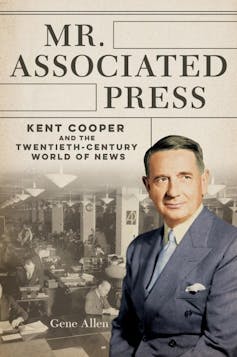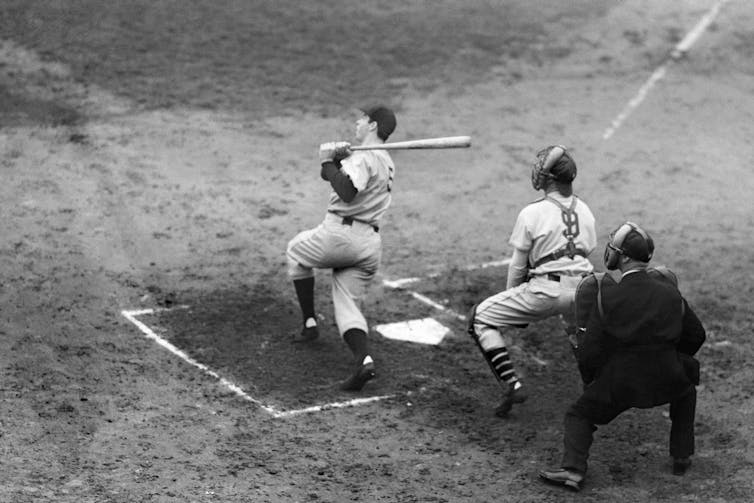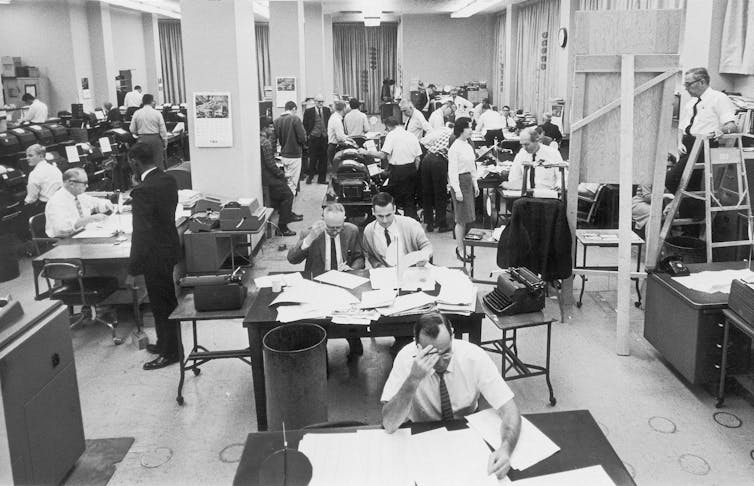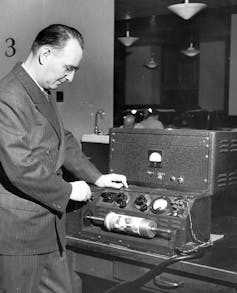
On the day of Kent Cooper’s funeral in February 1965, the flow of news through the international Associated Press network — the institution he spent a 40-year career building — came to a complete stop.
In scores of AP bureaus and thousands of newsrooms around the world, the printers that hammered out the news fell silent.
This tribute to a man who changed the kind of news millions of readers and listeners relied on, and opened the way for its global spread, lasted only a minute before the torrent of news resumed.
But it was AP’s highest honour, a vivid testimony to the institutional importance of the man widely known to journalists in the United States, Canada, Europe, Asia and Africa as K.C.
Almost a century after Cooper became AP’s general manager, what can we learn from his career and the development of the institution he led? And what does it tell us about how journalism — including the international news system — evolved during the mid-20th century?
And what light might his career shed on today’s troubled news landscape, where organizations like Fox News systematically spread falsehoods that even its own employees do not believe?
Human-interest news

During Cooper’s long tenure as a senior executive, general manager and executive director — as documented in Mr. Associated Press, my newly published biography of him — he changed AP, and the news that its readers and listeners depended on, in three major ways.
First, driven by competition with the United Press, AP’s great rival, Cooper loosened the strictures that made AP news colourless and dull (even if widely recognized for its accuracy and impartiality).
Editors of AP member newspapers were turning to the livelier and breezier (and, according to some AP supporters, less accurate) stories provided by UP. That could not be allowed to continue.
Cooper responded by embracing human-interest stories, entertainment, sports and other less traditionally newsworthy subjects.

“If one man fails to file a story of a millionairess marrying a poor factory hand because that man understands such a story is not properly A.P. stuff,” Cooper wrote in 1922, “such an error of news judgment ought to be generally made known to other employees.”
Journalism had to succeed in the market by offering readers what they wanted to read, rather than what journalists thought they ought to read.
Moving beyond North America
The second major change — one that Cooper spent more than 15 years fighting for — was loosening restrictions that prevented AP from distributing news outside North America. These restrictions were a product of AP’s earlier reliance on the British agency Reuters and its allies for almost all its international news.
While many AP directors considered the Reuters connection an essential foundation of AP’s dominance of the U.S. newspaper market, Cooper insisted AP could succeed on its own. By doing so, AP could also change its relationships with European news agencies that were often controlled or heavily subsidized by their respective governments.
By 1945, his campaign had succeeded: AP was poised to sell North American-style news everywhere in the world with virtually no restrictions. This development gave readers in other countries access to a different kind of journalism than they were familiar with. It also raised questions about American influence beyond its borders that remain relevant today.

In his relentless pursuit of expansion, Cooper sometimes conveniently set aside his public opposition to government-subsidized or government-controlled news. For instance, he maintained close connections with the Nazi-controlled German news agency Deutsches Nachrichtenbüro after 1934, and consistently played down limits on the work of international correspondents in Germany.
Despite Cooper’s failure to denounce Nazi press restrictions, AP wasn’t actively involved in spreading German propaganda. Its alliance with Deutsches Nachrichtenbüro ended after Germany declared war on the United States in December 1941.
Cooper also established an alliance with the Japanese news agency Rengo, despite knowing it was heavily subsidized by Japan’s militaristic and imperialist government.
The trade-off between access and acceptance of limits by authoritarian regimes on what can be reported remains a major problem for journalists today, as is the case with Western news organizations in China.
Embracing technology

Cooper was a visionary when it came to adopting new technologies.
Although many AP members feared radio in the 1920s and 1930s as a dangerous competitor for advertising revenue, Cooper understood from the start that radio could not, and should not, be resisted — a conclusion that has clear resonance in the age of digital journalism.
He also pioneered the development of same-day news photography by wire, permanently changing daily journalism’s repertoire of storytelling methods.
Before the advent of AP’s Wirephoto, photographs were delivered by mail, train or airplane, often taking days to reach their destination. Wirephoto revolutionized the process by allowing images to be transmitted in minutes.
Commitment to facts and accuracy
One thing that Cooper did not change was AP’s commitment to factual accuracy and political neutrality — a rejection of the virulent partisanship that dominated U.S. journalism for most of the 19th century, and that is now returning.
On the factual side, few things caused him, and AP, more grief than high-profile errors. In one memorable case in 1935, AP falsely reported that the murderer of Charles Lindbergh’s baby had been sentenced to life in prison, rather than receiving the death penalty.
Such errors led to immediate investigations of what had gone wrong, embarrassed and apologetic corrections, and severe consequences including firing of those responsible.
In these cases, competition between AP and UP focused on which agency’s news was faster and more reliable, a marked contrast to the dissemination of ideologically driven falsehoods and social media misinformation that we see today.
Cooper was not perfect, and neither was AP during the years that he led it, but its basic journalistic values stand out sharply against the backdrop of our current fractured news landscape.
Gene Allen has received funding from the Social Sciences and Humanities Research Council of Canada and from Indiana University (Everett Helm Fellowship).
This article was originally published on The Conversation. Read the original article.







